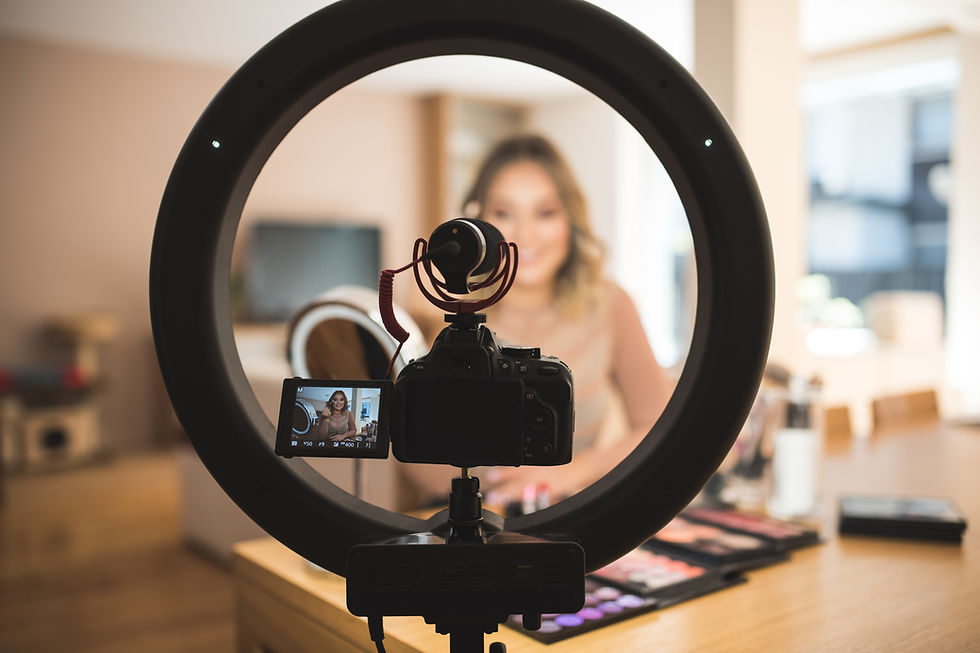10 Tips to Boost Your On-Camera Confidence and Look Like a Pro
- Elyse Sevi

- Apr 4, 2023
- 2 min read
Updated: Nov 13, 2023
On-camera confidence refers to the ability to appear confident and comfortable while being recorded on camera. It involves projecting a positive image, speaking clearly and confidently, maintaining eye contact with the camera, and having good body language.

People with on-camera confidence often come across as authentic, engaging, and trustworthy, which makes them more effective communicators. They are able to convey their message effectively and connect with their audience, whether they are speaking in front of a camera for a video or a live broadcast.
Developing on-camera confidence takes practice and preparation, as well as a good understanding of your audience and your message. It is important to be comfortable with yourself and your material, and to project a positive attitude and energy. With practice and experience, anyone can develop on-camera confidence and become an effective communicator on camera.
Here's 10 tips to boost your on-camera confidence:
Practice, practice, practice: The more you practice speaking on camera, the more comfortable and confident you will become. You can practice in front of a mirror or record yourself with a camera or smartphone.
Prepare your material: Make sure you are well-prepared and have a clear understanding of your topic. Create an outline or script to help you stay on track and organized.
Dress for success: Dress appropriately for the occasion and the message you want to convey. Wear clothing that is comfortable, professional, and reflects your personal style.
Be aware of your body language: Your body language is a crucial aspect of on-camera confidence. Sit up straight, make eye contact with the camera, and use gestures to emphasize your message.
Speak slowly and clearly: Speaking too fast or too quietly can make you appear nervous or unsure. Speak slowly and clearly, enunciate your words, and use pauses for emphasis.
Smile and be positive: A positive attitude and a smile can go a long way in building trust and credibility with your audience.
Use visual aids: Visual aids such as slides or props can help you stay on track and engage your audience.
Be aware of your surroundings: Your environment can affect your on-camera confidence. Choose a location with good lighting and minimal distractions.
Get feedback: Ask for feedback from friends, family, or colleagues to help you improve your on-camera performance.
Keep practicing: The more you practice, the more confident you will become. Keep practicing and refining your skills to become a pro on-camera.
.png)





Comments